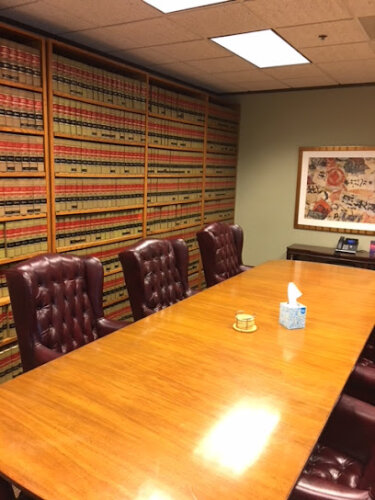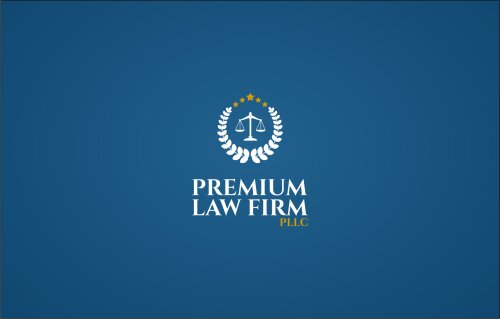Best Communications & Media Law Lawyers in Missouri
Share your needs with us, get contacted by law firms.
Free. Takes 2 min.
Or refine your search by selecting a city:
List of the best lawyers in Missouri, United States
About Communications & Media Law in Missouri, United States
Communications and Media Law in Missouri covers the regulations, statutes, and court decisions that govern how information is created, distributed, and accessed within the state. This area of law addresses issues arising from broadcast media, print publications, online platforms, advertising, telecommunications, and freedom of expression. In Missouri, both state and federal laws interact to guide how media and communications organizations operate, protect individual rights, and set standards for public discourse and access to information. Communications & Media Law helps balance the rights of individuals, media entities, and the broader public interest in an ever-evolving digital landscape.
Why You May Need a Lawyer
Legal issues in Communications & Media Law can arise in many situations. If you are a journalist facing threats to press freedom, a business concerned about advertising compliance, or an individual who believes their privacy has been violated by media or online activities, legal help may be necessary. Other common scenarios include facing accusations of defamation or libel, dealing with copyright disputes over creative content, handling issues related to the right to publicity or privacy, and navigating the complex licensing requirements for broadcasting or telecommunications in Missouri. Lawyers in this field can help clarify rights and obligations, represent clients in court, negotiate settlements, and ensure compliance with state-specific and federal laws.
Local Laws Overview
Missouri’s approach to Communications & Media Law features several key aspects. The state upholds the First Amendment guarantees of free speech and press under both its state constitution and federal law. Missouri has specific statutes dealing with defamation - both libel (written) and slander (spoken) - and these require plaintiffs to prove false statements were made with actual malice in certain circumstances, especially involving public figures. Privacy laws in Missouri offer recourse for intrusion, false light, and misappropriation of image or likeness. The state also participates in federal regulatory schemes for telecommunications overseen by bodies like the Federal Communications Commission, but has its own regulations for cable franchises and content distribution. Missouri’s Sunshine Law ensures open access to public governmental records and meetings, supporting transparency in media reporting. Additionally, Missouri law recognizes the importance of protecting children and consumers from inappropriate or deceptive communications and advertisements.
Frequently Asked Questions
What is considered defamation under Missouri law?
Defamation in Missouri includes both libel and slander, referring to false statements that harm another person's reputation. To succeed in a defamation claim, the statement must be false, published to a third party, made with at least negligence, and result in damages. Public figures must prove the statement was made with actual malice.
How does Missouri protect freedom of speech and the press?
Missouri's Constitution and statutes closely mirror the protections of the First Amendment, supporting robust free speech and press rights. However, these rights are subject to reasonable limitations regarding defamation, privacy, and public safety.
Are there legal restrictions on recording conversations in Missouri?
Yes. Missouri is a one-party consent state, meaning you can record a conversation if at least one party to the conversation consents to the recording. Recording without consent from at least one participant can result in criminal or civil penalties.
What rights do individuals have regarding privacy in media representations?
Missouri law allows individuals to pursue claims if their likeness, image, or personal details are used without permission for commercial gain, or if they are depicted falsely in a way that would offend a reasonable person.
Can I sue a media outlet for publishing false information about me?
Yes, if the false information causes reputational harm and meets the state's legal standard for defamation. Public figures must additionally show that the information was published with knowledge of its falsity or reckless disregard for the truth.
How does copyright law apply to content creators in Missouri?
Copyright law is primarily federal, but Missouri courts enforce those rights. Creators have exclusive rights to their original works, and unauthorized use or reproduction may result in legal claims for damages or injunctions.
What is the Missouri Sunshine Law and how does it affect media?
The Missouri Sunshine Law ensures that most records and meetings of public governmental bodies are open to the public. It promotes transparency and access to information for journalists, media entities, and ordinary citizens.
Are there advertising regulations specific to Missouri?
Missouri law prohibits false, deceptive, or misleading advertisements. Certain products and services, like alcohol or legal services, are additionally regulated to ensure compliance and protect consumers.
How are telecommunications services regulated in Missouri?
Missouri telecom companies are subject to both state regulations (overseen by the Missouri Public Service Commission) and federal rules from the Federal Communications Commission. These laws govern licensing, billing, consumer protection, and competition.
What steps should I take if I receive a cease and desist letter related to online content?
If you receive a cease and desist letter, do not ignore it. Consult with a lawyer experienced in Communications & Media Law to review the claims, assess potential liability, and determine the best response to protect your interests and avoid legal escalation.
Additional Resources
Missouri residents seeking information or assistance with Communications & Media Law issues may consult the following resources:
- Missouri Bar Association - Provides legal resources and attorney directories
- Missouri Public Service Commission - Oversees telecommunications regulations in the state
- Missouri Attorney General’s Office - Handles complaints regarding deceptive or unfair practices
- Federal Communications Commission (FCC) - Regulates interstate and international communications regulations
- Society of Professional Journalists, Missouri Chapter - Offers guidance and advocacy for journalists
- Missouri Sunshine Coalition - Promotes open government and offers resources on the Sunshine Law
Next Steps
If you believe you need legal assistance with a Communications & Media Law issue in Missouri, consider the following steps:
- Document all relevant communications, publications, contracts, or correspondence related to your issue
- Consult with a qualified attorney who specializes in Communications & Media Law in Missouri
- Research your specific legal issue using the resources above to better understand your rights
- Act promptly, as some claims are subject to strict time limits (statutes of limitation)
- Contact the Missouri Bar Association or local legal aid organizations if you require help finding qualified legal counsel
Proactively seeking legal advice can help protect your rights, resolve conflicts efficiently, and ensure compliance with Missouri’s communications and media regulations.
Lawzana helps you find the best lawyers and law firms in Missouri through a curated and pre-screened list of qualified legal professionals. Our platform offers rankings and detailed profiles of attorneys and law firms, allowing you to compare based on practice areas, including Communications & Media Law, experience, and client feedback.
Each profile includes a description of the firm's areas of practice, client reviews, team members and partners, year of establishment, spoken languages, office locations, contact information, social media presence, and any published articles or resources. Most firms on our platform speak English and are experienced in both local and international legal matters.
Get a quote from top-rated law firms in Missouri, United States — quickly, securely, and without unnecessary hassle.
Disclaimer:
The information provided on this page is for general informational purposes only and does not constitute legal advice. While we strive to ensure the accuracy and relevance of the content, legal information may change over time, and interpretations of the law can vary. You should always consult with a qualified legal professional for advice specific to your situation.
We disclaim all liability for actions taken or not taken based on the content of this page. If you believe any information is incorrect or outdated, please contact us, and we will review and update it where appropriate.
Browse communications & media law law firms by city in Missouri
Refine your search by selecting a city.














